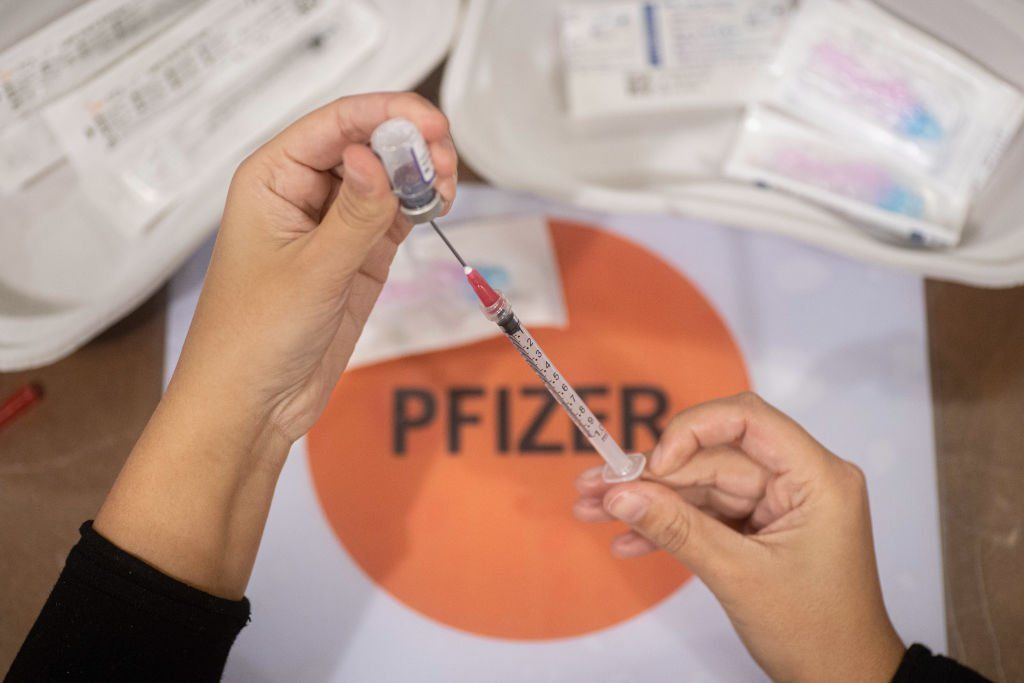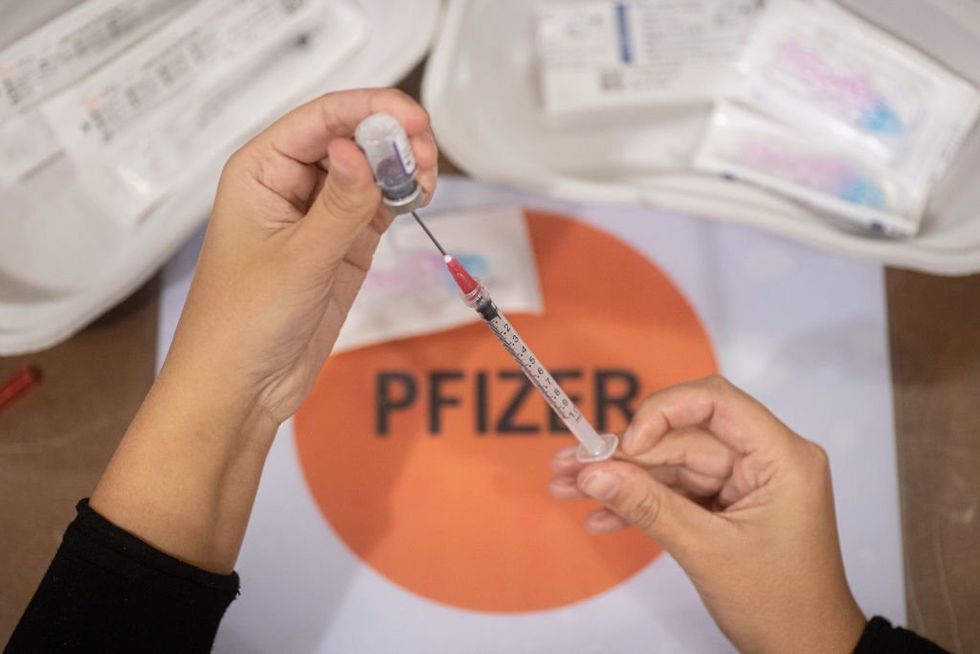Pfizer mRNA jab leaves 1 in 3 recipients with ‘unintended immune response’: Cambridge study | Blaze Media

A peer-reviewed University of Cambridge
study published Wednesday in the scientific journal Nature has revealed the Nobel Prize-winning technique that paved the way for synthetic messenger ribonucleic acid vaccines is far from flawless.
To trick the body into allowing cellular interventions by synthetic mRNA-based therapeutics, scientists discovered they first had to make chemical modifications to the building blocks of the mRNA. Researchers indicated this week that encounters with repeat base modifications often lead to cellular miscommunications, which ultimately trigger immune flare-ups in vaccine recipients.
Since the mRNA technology rushed to market during the pandemic is now being used to treat various cancers and diseases, the researchers stressed the urgency of addressing this issue.
Anne Willis, a co-author of the study and biochemist from the University of Cambridge’s Medical Research Council Toxicology Unit, said it is “essential that [mRNA] therapeutics are designed to be free from unintended side effects.”
What’s the background?
Katalin Karikó and Drew Weissman were
awarded the 2023 Nobel Prize in Physiology or Medicine in October for their discoveries that enabled the development of “effective mRNA vaccines” against COVID-19.
The duo observed that the body treated synthetic mRNA — genetic material designed to tell cells in the body how to make specific proteins, such as the “spike” protein — as a foreign invader. Faced with this invader, the body would undergo an inflammatory response. This reaction proved troublesome for potential therapeutics as the body’s natural response to the synthetic material hindered its efforts to enter cells and exert its effects,
according to the University of Cambridge.
Karikó and Weissman discovered that by chemically modifying its uridine RNA base, the synthetic mRNA could steal past the body’s defenses and issue its protein schematics.
The Telegraph
reported that it was widely believed until now that the modification to uridine was unproblematic. However, it’s now clear that these covert genetic operations leave an undesired mark on a significant portion of patients subjected to the gene therapy.
Cellular miscommunication
Researchers with the MRC Toxicology Unit set out to analyze whether there were any safety issues linked to mRNA-based therapeutics. They found that “the cellular machinery that ‘reads’ mRNAs ‘slips’ when confronted with repeats of a chemical modification commonly found in mRNA therapeutics,” the university indicated in a release.
The aforementioned “cellular machinery” is called a ribosome. The ribosome reads and translates mRNA code, providing the body with instructions on how to make antibodies. When confronted with a chemical base modification of mRNA called “N1-methylpseudouridine,” ribosomes apparently slip around 10% of the time, according to Anne Willis and immunologist James Thaventhiran.
These so-called slips result in the production of unintended proteins, which set off an “unintended immune response.”
The Cambridge researchers, collaborating with scientists at other English universities, tested for evidence of the production of “off-target” proteins in vaccine recipients, specifically those who took the mRNA Pfizer COVID-19 vaccine. Sure enough, they “found an unintended immune response occurred in one third of the 21 patients in the study who were vaccinated.”
mRNA is also utilized in the Moderna vaccine, but the scientists did not report testing it for slips.
Despite the immune responses and the small sample size, the researchers claimed there were no “ill effects” as the unintended proteins produced were not viable in the body.
“The safety concern for future mRNA medicines is that misdirected immunity has huge potential to be harmful, so off-target immune responses should always be avoided,” said Thaventhiran.
The Cambridge team determined that the mRNA sequences could be redesigned to ensure the production of the intended protein and thereby avoid such unintended immune responses.
Thaventhiran, senior author of the study, issued the necessary declaration that COVID-19 vaccines are safe, then added, “We need to ensure that mRNA vaccines of the future are as reliable. Our demonstration of ‘slip-resistant’ mRNAs is a vital contribution to future safety of this medicine platform.”
Like Blaze News? Bypass the censors, sign up for our newsletters, and get stories like this direct to your inbox. Sign up here!



